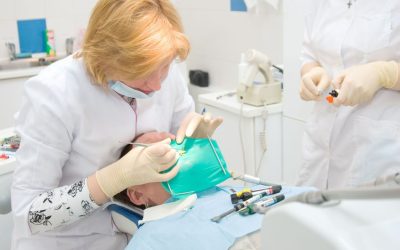Orthodontic treatment is most commonly provided to align permanent teeth and correct jaw abnormalities in adolescents. Parents of young children may be surprised when their pediatric dentist recommends an appointment with an orthodontist in Hinsdale. If a youngster still has baby teeth, does it make sense to begin orthodontic treatment? In some cases, early intervention prevents problems or corrects issues that would likely worsen in the future.
Jaw Abnormalities
Jaw growth and development abnormalities in young children can result in misaligned teeth, a problem medically known as malocclusion. Pediatric intervention by an orthodontist in Hinsdale can prevent the need for braces during adolescence or significantly shorten the time frame for that second treatment stage. Early orthodontic care guides jaw growth and balance while improving facial symmetry.
Bite Issues
Even with baby teeth, a child may have an overbite, underbite, or crossbite. Pediatric orthodontic treatment can improve the ability to chew, maintain proper oral hygiene and even speak more clearly.
Missing Baby Teeth
Baby teeth not only allow youngsters to chew food, but they also function as placeholders for permanent teeth. When these primary teeth are lost prematurely because of trauma or decay, adjacent teeth tend to drift into the gap. This can lead to crowding and alignment issues for incoming permanent teeth. Orthodontic care maintains the appropriate space so that permanent teeth move into the correct positions.
Treatment Examples
Some of the more common early interventions include partial braces and wearing a retainer at night. A child may benefit from a palate expander that widens a narrow upper jaw.
Contact Oakbrook Orthodontics if you are looking for an Orthodontist in Hinsdale. Visit OakbrookOrtho.com for more information!


